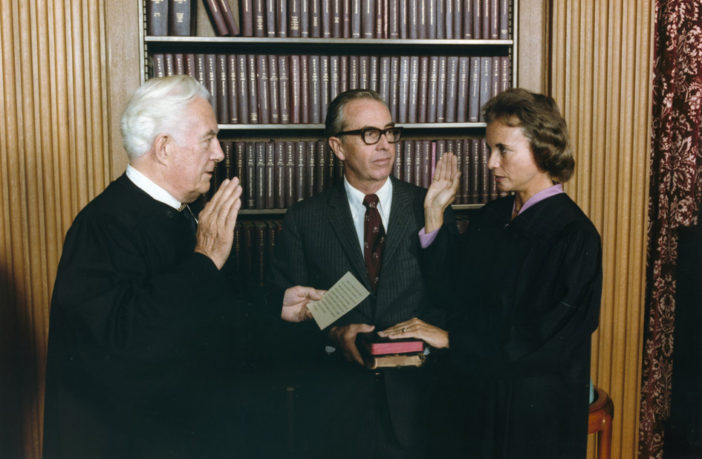Sandra Day O’Connor, the trailblazing legal luminary who shattered the glass ceiling as the first female Supreme Court justice, died on Friday morning in Phoenix. She was 93.
The icon’s battle with dementia was disclosed to the public in October 2018 through a poignant letter in which she expressed her inability to continue participating in public life due to the advancing condition. Politico first reported her death.
During her 24-year tenure on the bench, Justice O’Connor left an indelible mark on American jurisprudence. Her pivotal role in landmark decisions on contentious issues such as affirmative action and abortion underscored her influence. Notably, O’Connor played a crucial role in the 5-4 decision in Bush v. Gore, a verdict that ultimately led to George W. Bush’s victory in the 2000 presidential election.
In recognition of her transformative contributions to the American judiciary, O’Connor received the Presidential Medal of Freedom in 2009. Her appointment in 1981 paved the way for subsequent female justices, including Ruth Bader Ginsburg, Sonia Sotomayor and Elena Kagan, solidifying her legacy as a true pioneer.
Born in eastern Arizona, O’Connor initially aspired to be a rancher but pursued a different path, overcoming gender-based employment discrimination to become the first woman appointed to the Supreme Court eventually. In a career that exemplified resilience, she served as a deputy county attorney, worked as a civilian attorney in Germany, and became the first female majority leader in the United States for the Arizona Senate.
O’Connor, appointed by President Ronald Reagan in 1981, embraced the significance of her historic role, according to Politico. “I felt a special responsibility… I could either do an adequate job so it would be possible for other women to be appointed without [people]saying, ‘Oh, see, a woman can’t do it,’” O’Connor said.
Even a battle with cancer couldn’t dampen O’Connor’s resolve. She underwent a mastectomy in 1988, emphasizing her determination to continue her judicial duties without interruption.
A moderate conservative, O’Connor defied easy categorization, often serving as a swing voter in high-profile cases. Her nuanced approach to abortion, evolving from an initial stance against it to a decisive vote in favor of upholding Roe v. Wade in 1992, showcased her commitment to legal principles and precedent.
In 2006, O’Connor stepped down from the bench to care for her husband, who was battling Alzheimer’s and was succeeded by Samuel Alito. Her legacy, however, extended beyond her judicial contributions. The Supreme Court, initially unprepared for a female justice, underwent symbolic changes, such as the designation of the first women’s bathroom near the courtroom.
Post-retirement, O’Connor founded iCivics in 2006, a groundbreaking initiative to educate children about the political process through interactive games.



